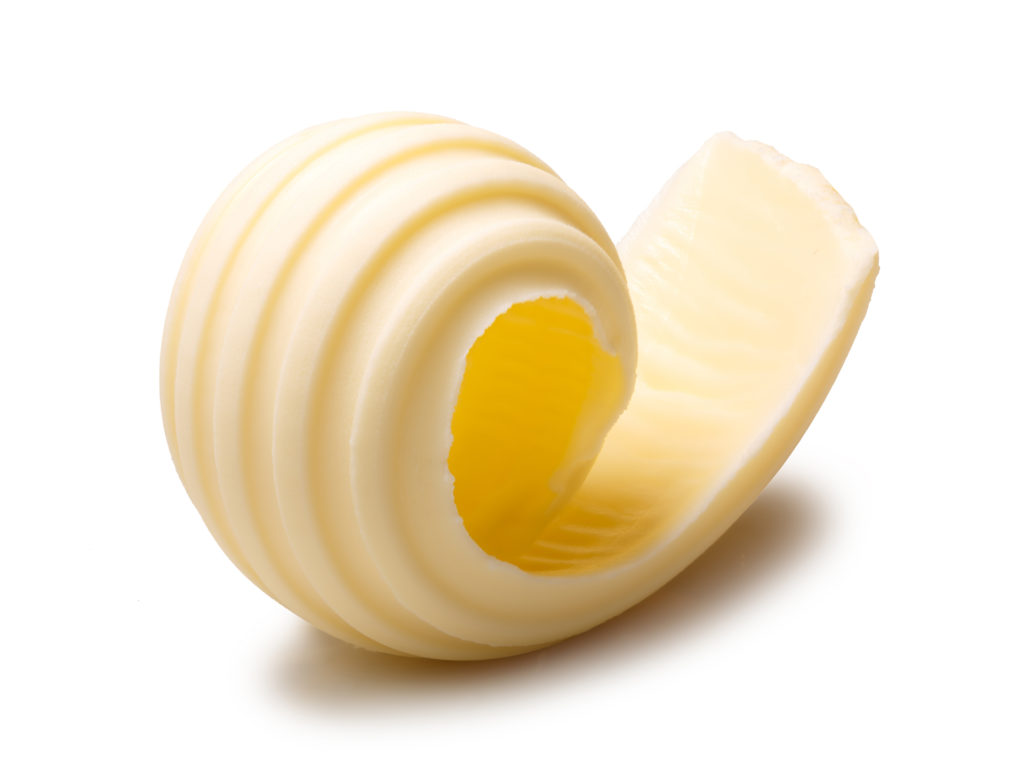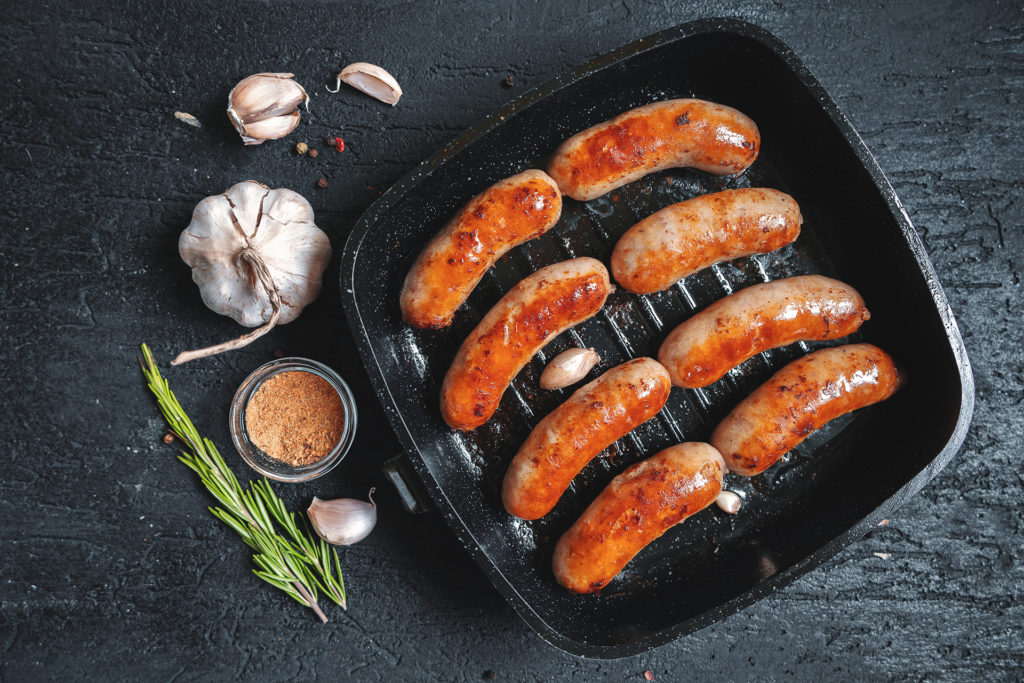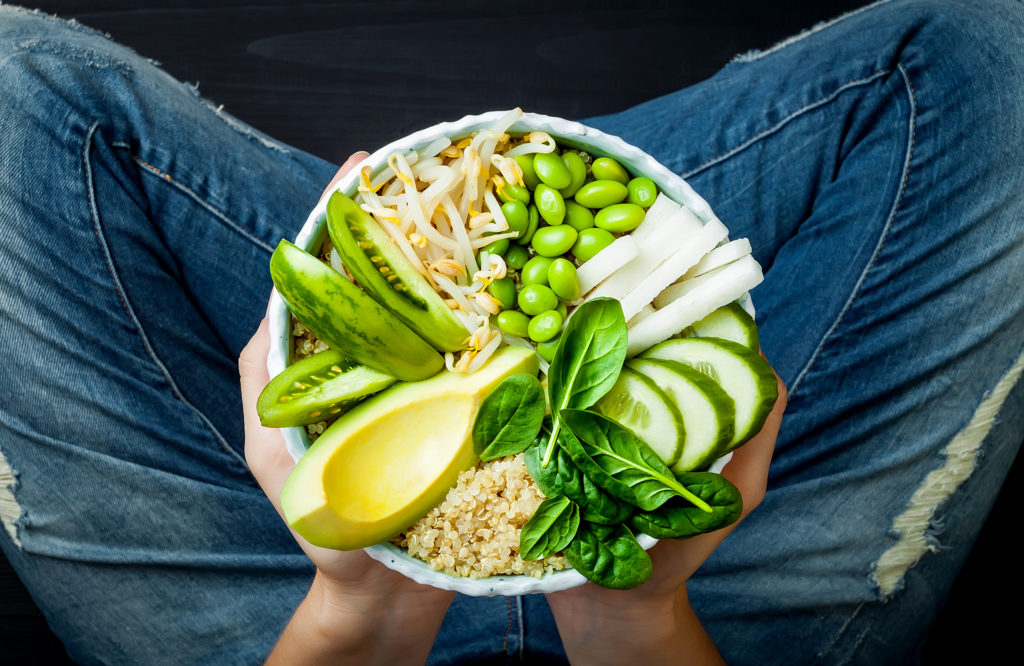20 Food Myths Debunked

A new study has identified the top 20 food myths and debunked them by revealing that margarine is healthier than butter and frozen food is just as good as fresh. Research among 2,000 adults uncovered widespread confusion around food health, with 47 per cent having believed something which they later found out to be untrue. More than one in four (28 per cent) are under the false impression that a dairy-free diet leads to calcium deficiency, while another 28 per cent believe humans need red meat for protein.
Almost three in 10 (29 per cent) think margarine is less healthy than dairy butter, despite 41 per cent admitting they don’t understand the difference between the two. This confusion means a quarter struggle to understand what foods are ‘good’ for them and two in five wish there was more education on the health values of certain diets. The research was commissioned by Upfield – a leader in plant-based nutrition – which worked with nutritionist and member of the British Dietetic Association, Priya Tew, to debunk some popular food myths.
Priya said: “With so many different sources of information out there today it’s hard for consumers to know what to believe when it comes to diets and food misconceptions. The research showed a sixth of the nation believe all margarine contains trans-fats. However, in truth, all market leading margarines removed partially hydrogenated oils many years ago, meaning they contain virtually no trans fats. Conversely, dairy butter has high levels of trans fats when compared to margarine.
“Similarly, almost a quarter of people are under the impression carbohydrates cause weight gain – of course overeating any food can lead to excess weight, but it’s all to do with energy balance and carbohydrates are not something to be avoided. In this day and age it’s confusing with blogs, online forums and social media all offering differing opinions of what we should and shouldn’t eat.
“Trends such as juicing are promoted – which a tenth believe is a more nutritious way of consuming fruit and veg, when really juicing breaks down the fibre and makes it easier for the natural sugars to be taken up by the bloodstream, so they are less nutritious. However, fruits and veggies that are blended to make a smoothie retain the pulp and flesh, making them a healthier alternative without the disadvantages of juicing.”
The study also found 44 per cent of those polled think a plant-based diet means you have no animal products whatsoever. In truth, this type of diet is made up of 80 per cent food derived from plants with some meat and animal products. And while four in five of respondents, polled via OnePoll, don’t think margarine is plant-based, two in five don’t believe peanuts are either. Despite the confusion, more than a third have given ‘clean eating’ eating a go, due to 48 per cent wanting to be ‘healthier’ and three in 10 simply hoping to eat more vegetables.
Similarly, a fifth of the nation have cut out meat and bread in an attempt to have a healthier lifestyle while almost a sixth have cut out dairy and a third avoided sugar. But factors including cost, lack of knowledge and having fewer options has stopped some Brits from trying a ‘free from’ diet. More than a quarter admitted they worry about the health and safety process of shop-bought foods, such as products containing plastic particles and a third often check the ingredients labels. But almost half of those who have cut something out of their diet realised there was ‘no difference’ in the money they were spending.
Dr Jeanette Fielding, speaking on behalf of Upfield said: “With the increase of plant-based options across England we have witnessed a growing curiosity among consumers about what is good, bad, processed or healthy for them. As a leader in plant-based nutrition, we are excited to lead the charge in debunking some of the misnomers about plant-based options. With information they can trust, consumers can make more educated decisions about what they are fuelling their bodies with.”
TOP 20 FOOD MYTHS BRITS BELIEVE
- Margarine is highly processed and unnatural
- Eating fresh food is better than tinned or frozen
- Eating too much fruit is bad for you due to the sugar
- A plant-based diet means you cannot eat meat, fish or dairy
- Margarine is unhealthier than dairy butter
- Dairy-free diets lead to calcium deficiency
- Humans need red meat in their diets for protein
- Organic foods are better for humans
- Eating carbohydrates will cause weight gain
- A plant-based diet will lead to iron deficiency/anemia
- A plant-based diet is more expensive than a diet comprised of more meat
- All margarine contain trans-fats
- Plant-based diets don’t provide enough energy for humans
- Plant-based meals will not fill you up
- It is impossible to find food options without meat or dairy
- Plant-based foods have no flavour
- Juicing fruit and vegetables is much more nutritious than eating them
- Plant-based options are highly processed
- Plant-based diets and veganism are emasculating
- Vegans can’t build muscle








